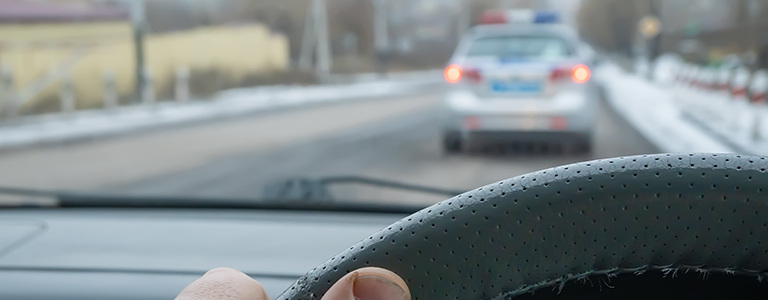
It is always stressful to see flashing blue or red lights in your rearview mirror, even if you believe you’ve done nothing wrong. However, being the driver in a car stopped by police for a traffic violation is the most common reason most Americans come into contact with the police each year.
In 2018, more than 18.6 million Americans were stopped by police for a suspected traffic violation, and nearly six million more were passengers in a car stopped by police. While most stops are for speeding or other traffic citations, a surprising number of seemingly simple traffic stops end in an arrest.
How Arrests Happen
The top reasons for traffic stops include:
- Speeding, which is number one
- Using a cell phone
- Hazardous or aggressive driving
- Equipment violations, such as burned-out tail-lights, headlights, or turn signals
- Following too closely
- Improper lane changes.
Police officers cannot lawfully stop you for no reason – they must have what is known as reasonable suspicion that you violated the law. Reasonable suspicion means that police must have a reasonable basis to believe a violation of some sort has been committed, and this could be as simple as not using a turn signal. On the other hand, in order to make an arrest, an officer must have probable cause to believe you committed an offense, which is a higher standard than reasonable suspicion.
So long as the police have justified the traffic stop, they have the right to question you and look for other violations of the law besides the one they initially suspected. They can ask you if you have been drinking or using drugs, they can ask to search your car, they can ask all manner of things. It’s important to remember that you don’t have to answer their questions, and you don’t have to consent to a search.
If you were just speeding, you likely will get a ticket and go on your way. If there is an obvious reason to arrest you, though – for instance, you appear drunk. Or the officer can see drugs or paraphernalia in plain sight in your vehicle – you will likely be placed under arrest.
Some common charges that arise from what would otherwise be routine traffic stops include:
- Driving under the influence (DUI)
- Possession of a controlled substance
- Unlawful possession of a firearm
- Driving on a suspended license
- Driving without insurance
If you have an outstanding warrant, that also is likely to result in an arrest once the officer puts your driver’s license into the system.
If You Are Arrested Following A Traffic Stop, Consult with A North Dakota Minnesota Criminal Defense Lawyer Immediately
If you were arrested following a traffic stop, you need defense representation you can trust. Our experienced criminal defense attorneys can be counted on to defend your rights and do their best to safeguard your future. Get in touch with Fargo Moorhead criminal defense lawyer Tatum O’Brien by email or call the legal team of O’Keeffe O’Brien Lyson Attorneys at 701-235-8000 or at 877-235-8002 toll-free to learn more.



